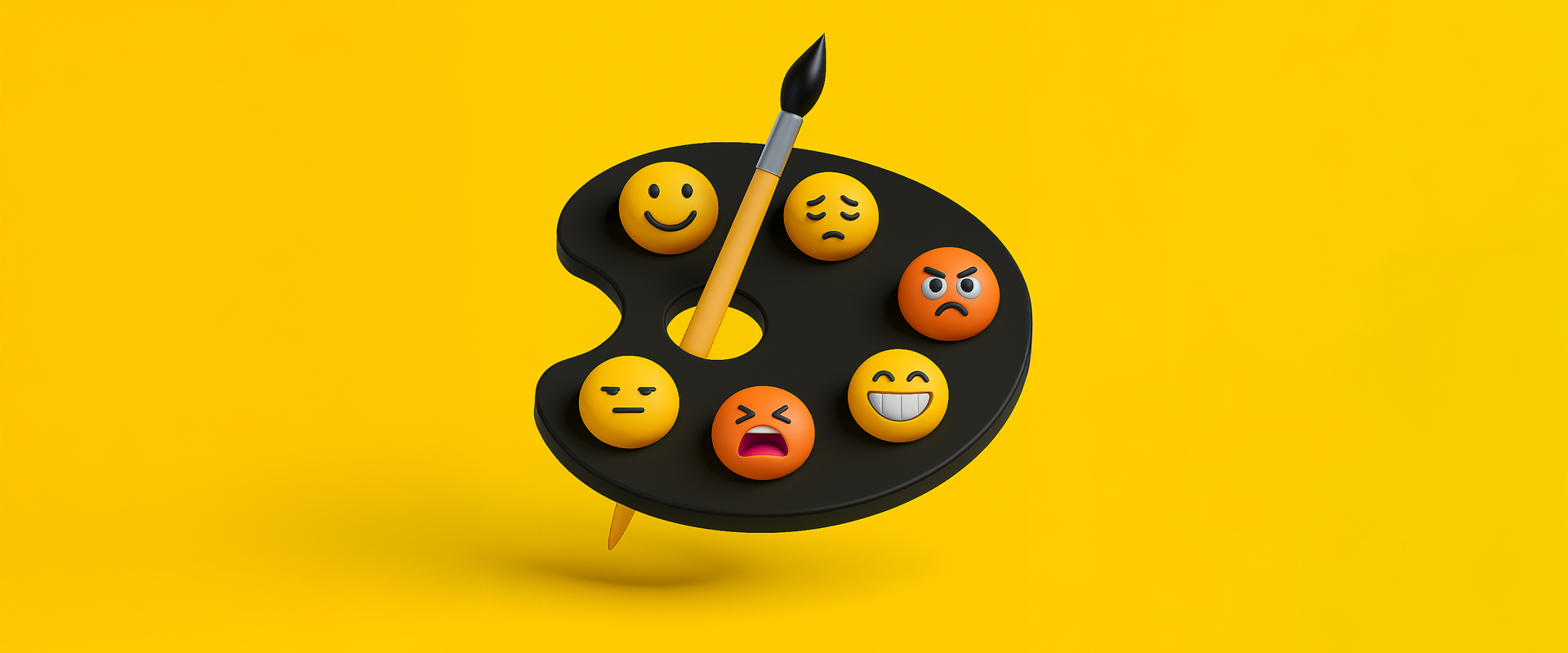Design no longer just stops at aesthetics, it’s the architecture of emotion. Each color, space, and movement impacts how users feel, think, and act. The best brands understand this truth: emotion is not something that occurs after design; it’s the trigger for decisions.
Where design and psychology meet, there is a tantalizing question: how do digital experiences shift from the realm of visual aesthetics to create emotional connection that evokes trust, loyalty, and action?
The Psychology of Color: Creating Emotional Identity
Color is the most rapid communicator of the human brain, it speaks before words. Blue creates trust. Red elicits urgency. Green stimulates balance and renewal. But beyond emotion, color sets a brand’s personality and strategy.
Design directors don’t select colors; they order emotional blueprints. A cohesive color approach harmonizes perception and intent, establishing how a brand’s audiences feel at each touch point. The ratio is exact, too much intensity overwhelms, too little fades away.
The greatest brands develop palettes that speak not only to their visual DNA, but to their audience’s emotional map. By doing so, color is not decoration but identity.
Layout as the Language of Trust
Every pixel serves a function. Layout is the humble teacher that dictates how users perceive information and feeling. Good design establishes rhythm and order, and invites discovery instead of demanding it.
White space between objects, content hierarchy, and clarity of structure all send emotional signals. Spacious layouts carry a sense of transparency and confidence; while cluttered ones communicate worry and distrust.
Great digital products use layout as an emotive tool. They lead users to clarity, confidence, and finally — conversion. Readability is not the goal; it’s credibility.
Animation: Movement that Feels Human
Motion, when deliberate, transforms static experiences into dynamic systems of interaction. Animation can express empathy. A hover, a fade, or a smooth transition suggests responsiveness and care.
Used strategically, animation focuses attention, creates tension, and emphasizes brand voice. The secret to success lies in intention. Every movement needs to have intent, echoing the rhythm and emotional quality of the brand.
Great design doesn’t overuse motion; it choreographs it. When animation is simulating human activity it transforms interfaces into experiences.
Designing with Empathy: The New Competitive Advantage
Empathy is the foundation of emotional design. To design with empathy is to understand not just what your users want, but how they feel while doing so.
In the midst of an era of digital fatigue, empathic design creates a feeling of belonging. It informs users that they’re heard not just as consumers, but as human beings. That empathy transforms transactions into relationships and interactions into trust.
Empathic designs garner not just attention but loyalty.
The Force of Emotion in Decision-Making
Emotion governs over 90% of human decisions. When design connects with those emotions, it moves users to act. People stay longer on websites that feel intuitive. They buy from brands they trust. They remember experiences that make them feel something.
When color, layout, and motion work in harmony, they do more than inform, they inspire. The goal isn’t manipulation, but meaningful communication. When design speaks the language of emotion, users respond with engagement and confidence.
Conclusion: Designing for Connection, Not Just Conversion
The future of design is emotional intelligence. Brands that master it will not only get attention, but make a lasting impression.
At Big Drop, we think design should happen between strategy and emotion where each decision, from color to movement, earns trust, empathy, and quantifiable outcomes.
If you’d like to craft digital experiences that move people emotionally, let’s create something amazing together.
Collaborate with us to craft experiences that don’t merely look good, but feel good.
